SUMMARY
This is AI generated summarization, which may have errors. For context, always refer to the full article.
![[Only IN Hollywood] Nancy Kwan looks back at her pioneering years in Hollywood](https://www.rappler.com/tachyon/2021/05/IMG_2193.jpeg)
Nancy Kwan recently looked back at her years as a pioneering Asian actress in Hollywood in the 1960s, as well as making films in the Philippines in the 1970s.
The Hong Kong-born star, the daughter of a Chinese architect (Kwan Wing Hong) and an English-Scottish model (Marquita Scott), blazed the trail for actors of Asian ancestry in tinseltown. Nancy debuted on the silver screen in The World of Suzie Wong and Flower Drum Song in 1960 and 1961, respectively.
But first, I asked Nancy, radiant and beautiful at 81, about her memories shooting movies in the Philippines, including Fortress in the Sun with Tony Ferrer and Fred Galang, both of whom we have lost. She played a Filipina in George Rowe’s 1975 movie.
Eddie Garcia, Chanda Romero and Ruel Vernal are also listed in the cast.
“I think the producer was Jesse Chua,” Nancy, who called from her Los Angeles home, began in our video conversation.
“He had a studio [Mirick Films] in the Philippines. I remember I was doing another film in the Philippines. Jesse contacted me and said, would you like to do a Filipino film shot in the Philippines with Filipino actors?”
“I said sure, why not? I am an actor, so why not? So, we did, and it was a great experience.”
Nancy was sad to learn that Tony died in January this year. “I am sorry that they both passed away. I knew about Fred but I didn’t know about Tony. I enjoyed working with them on the film.”
“I did two movies with Ross Hagen, a good friend of mine who also just passed away a few years ago. Let’s see…I can’t remember actually. I did three movies [in the Philippines]. I remember the directors.”
I told Nancy that I can look it up on IMDb. A quick glance on her filmography yielded several movies that she shot in the Philippines, with Filipino and American casts that includes familiar names. It was quite a blast from the past.
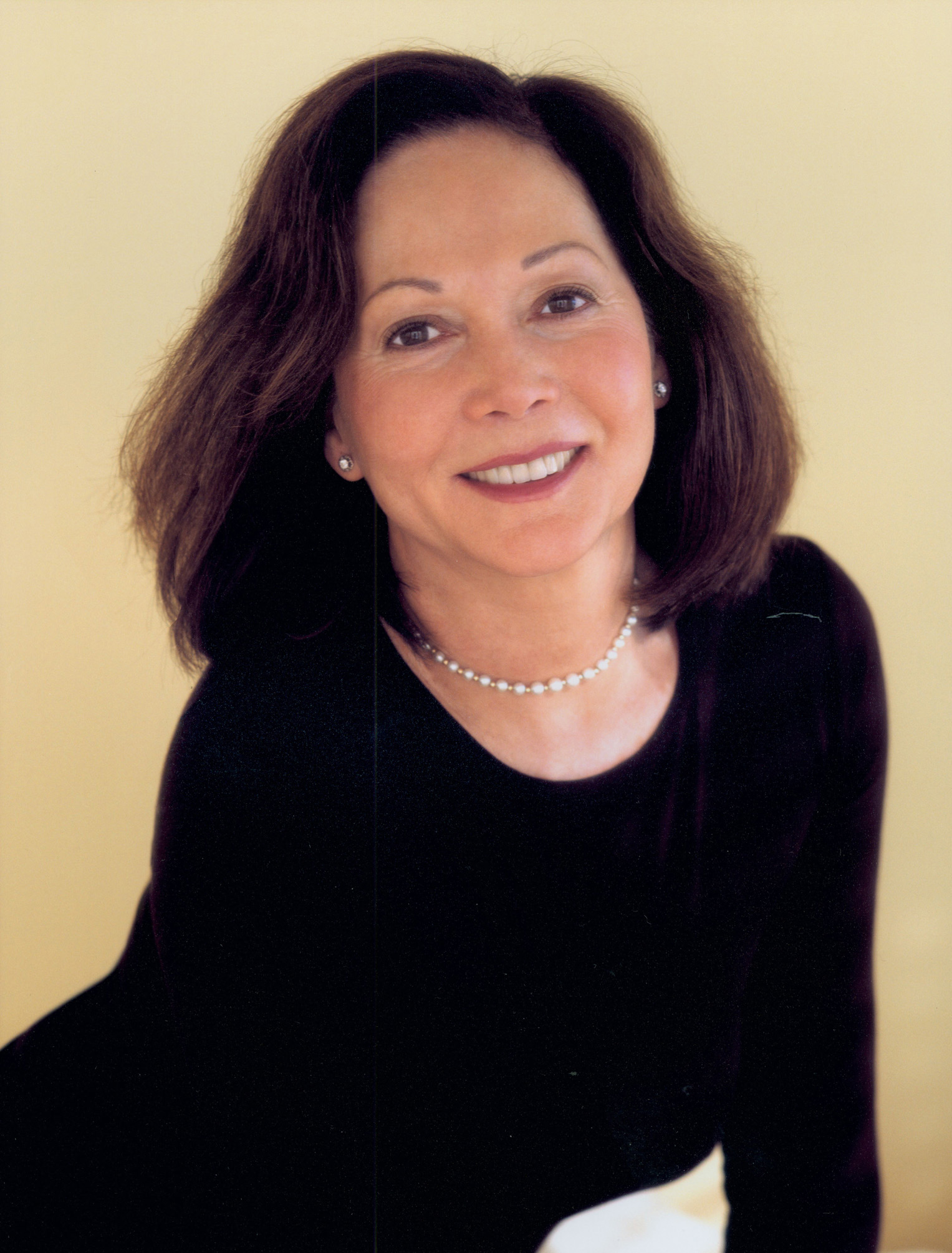
The two films she did with Ross in the Philippines were 1973’s Wonder Women, directed by Robert Vincent O’Neil and co-starred Vic Diaz, Bruno Punzalan and Joonee Gamboa and 1975’s Supercock, megged by Gus Trikonis, with Joonee, Charlie Davao, Subas Herrero and Roderick Paulate (then a child actor).
Supercock (what a title, huh) is described on IMDb as a comedy-drama about “an American cowboy in the Philippines [who] gets mixed up in cockfighting.”
The Pacific Connection, which Nancy mentioned, was shot in 1974 and directed by Luis Nepomuceno with Roland Dantes, Guy Madison, Alejandro Rey, Gilbert Roland, Dean Stockwell Elizabeth Oropesa, Fred Galang, Gloria Sevilla and Vic Diaz.
Speaking of catchy titles, Nancy also made a 1971 movie in the US, Karioka Etchos De America with beloved Pinoy comedians Dolphy and Panchito and director Luciano B. Carlos.
“Yes, I did!” Nancy exclaimed when I asked if she watched the 2002 revival of Flower Drum Song, the Rodgers and Hammerstein’s musical which was based on C.Y. Lee’s 1957 novel and which was adapted for film with her as Linda Low.
Lea Salonga, as Linda Low, and Jose Llana headlined that revival which premiered in LA in 2001 and moved to Broadway in 2002.
“It’s great for all these young actors and a lot of them do Flower Drum Song,” Nancy enthused. “I’ve had quite a few of my girlfriends who used to call me up and say, oh Nancy, I want to do your role and do you have any tips, can you help me?”
“I said, look, you are going to be great, and they were. They were terrific. They put their own personality into it and they were wonderful.”
Flower Drum Song was Nancy’s second movie in America. To this day, she is also memorable in the title role of her Hollywood film debut, The World of Suzie Wong, where she acted opposite William Holden. She won the role over 30 aspirants from the Philippines, Hollywood, France, Japan and Korea.
Nancy shared how she, a Hong Kong dancer who went to a boarding school in England, ended up in Hollywood and blazed the trail for Asians.
She recounted, “I always wanted to be a ballet dancer since I was very young in Hong Kong. I did a lot of concerts and took a lot of classes and was very dedicated. Then I went to boarding school in England.”
“One thing I insisted on was, I wanted to get into The Royal Ballet. So I had an audition there when I was about 12. They accepted me. They said, finish your education and then come and join us. So that’s what I did.”
“Then one summer, I was back home in Hong Kong for the holidays. I heard that Ray Stark and Seven Arts [Productions] were going to do screen tests of some of my favorite Chinese actors.”
“I thought, oh I’d like to see that. I’ve never seen a screen test and I get to see my favorite actors. I asked my father and he said, ok, I’ll arrange it for you. So I’m up at the studio and standing in semi-darkness, looking at the actors working, testing.”
“Suddenly, somebody comes up to me and says, excuse me, are you here for the screen test? I said, oh no, I’m just observing, I’m home for the holidays and I’m a dancer.”
“He said, would you like to do a screen test? I didn’t know anything about it. He said, come with me. He said, look, go over there, sit on that stool there and we’ll just ask you a few questions.”
“I thought ok, all right. I sit on the stool and they ask me my age and all that stuff, how are you doing and how’s everything going. I giggled through the whole interview (laughs).”
“Maybe four, five, six weeks later, I was about to go back to England. My father receives this letter from Ray Stark. Ray said, we saw your screen test and we would like to give you a contract to come to Hollywood.”
“My father said, do you want to go? I said, if it doesn’t work out, I can always go back to school in England. I said yeah, I’d like to go.”
“My father said [to Ray], one thing very important is that we don’t know anyone in Hollywood. She has to stay in a place for women only, like a women’s hostel or something. So they came back and said, what about the (Hollywood) Studio Club?”
“At that time, I didn’t know anything about the Studio Club but my father said, ok, as long as it’s all women. So I arrived in the Studio Club. I remember the first morning I went to breakfast at the Studio Club.”
“I’d never seen so many beautiful women from all over the world, having breakfast and speaking in different languages and everything. I thought, ah, I’m going to like this place. And that’s how I started.”
She added about that era in the early 60s, “The films are different. You had movie stars like Clark Gable and Paul Newman. Wonderful actors and times have changed. I always admired Cary Grant.”
“When I was doing Flower Drum Song, Cary Grant came on the set. He said hello. I’ve always admired his work. People like that were so glamorous. Those were the Hollywood days for me.”
“I just did my work and got on, met people and found them interesting. Some of us became friends and stayed friends for as long as today.”
She reportedly turned down a role in 1993’s The Joy Luck Club because the filmmakers declined to remove a line describing The World of Suzie Wong as a “horrible, racist film.”
Nancy volunteered to talk about her friendship with my colleague and our mutual pal, Noel de Souza, which I welcomed because it was another peek at those starkly different days in Hollywood.
“Noel is my oldest friend in Hollywood,” she said with a smile. “I met him at the Studio Club. Can you imagine? We go back a long time.”
“I was at the Studio Club, as I said. Every Saturday, they had a dance. All the girls lived upstairs. Downstairs was the ballroom and the dining-room.”
“One Saturday dance, I’m sitting there and a young man comes up to me and said, would you like to dance (laughs)? I looked at him and I went, oh, no, no. I was so shy.”
“I said, oh, thank you very much (laughs). And that’s how Noel and I met for the first time. Along the way, we wrote screenplays together. We have a lot of mutual friends that we have now lost.”
As for being the rare Asian making it in those times, Nancy recalled, “I knew I was different and so Asian but I really did not feel [resentment toward me], especially where I was staying at the Studio Club and among my friends.”
“Later on, about racism and everything else in the film business, I know it’s there. I know there are not many roles written for Asians.”
“Ray Stark always encouraged me. He said, we’re going to put you in different movies playing different roles instead of Asian roles to try to get away from that. Which I did. I don’t know whether it worked or not but I did it. So I got the chance to do it.”
“There’s a time and place for everything in life. When we started in the film business in the early 60s, there were just a handful of Asian actors in the film business. We all knew each other. We all supported each other and yes, I wish we had more support.”
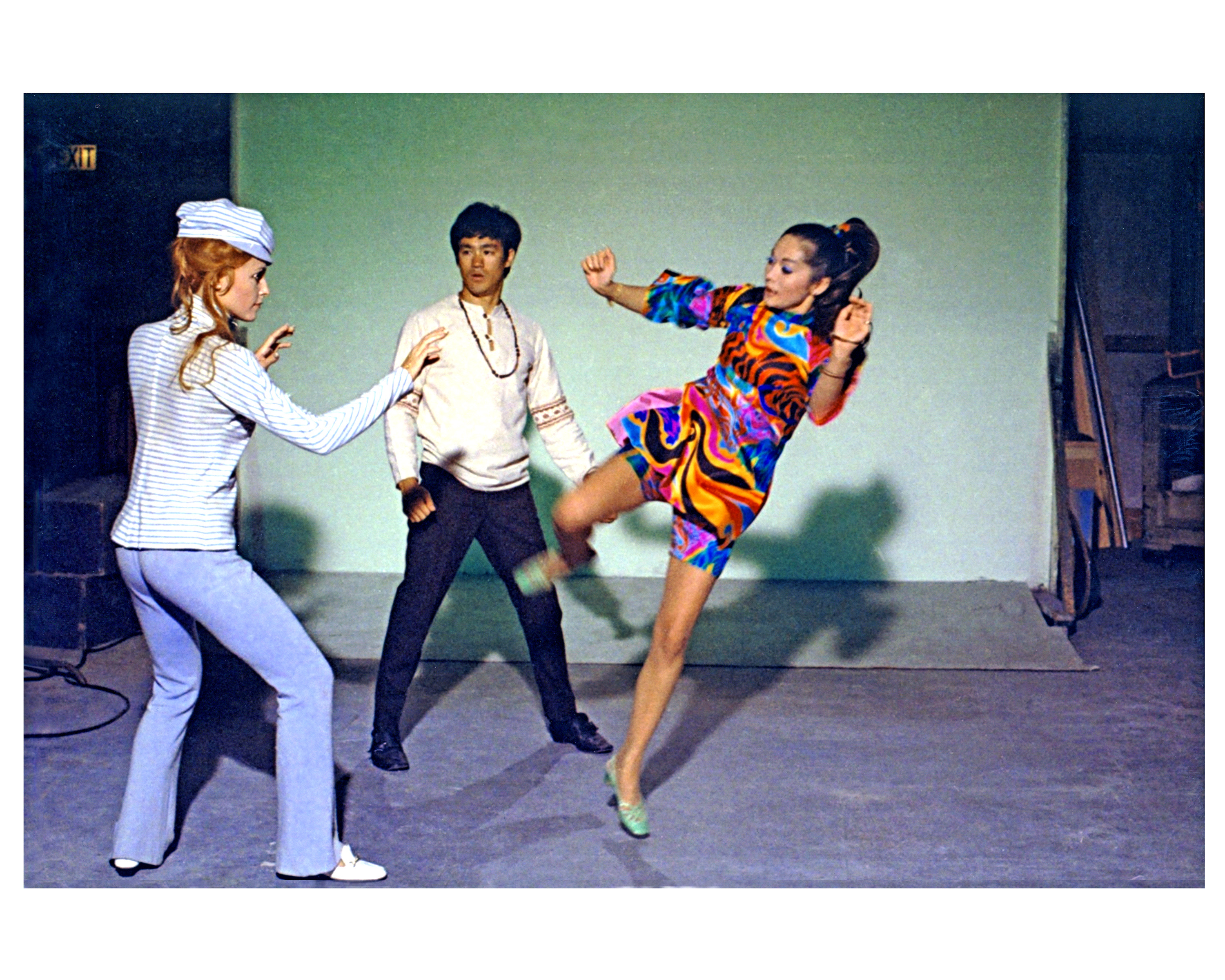
“I wish we had gotten better roles written for Asians at that time. I still think it’s not enough today but it’s getting better because there is more awareness than when we first started.”
“But that’s life. You just have to deal with it. And yeah, we complained a lot and we tried to encourage them to write better roles (for Asians) but it didn’t happen. And now, with Netflix and all these other programs, it has opened up a lot for people of color, any nationality.”
Nancy was excited about the big stride that Chloe Zhao made when she recently became the first Asian woman to win the Academy’s best director prize for Nomadland.
“I am so glad that she won. First time that an Asian woman won best director. I enjoyed the film [Nomadland] a lot. And I hope it will happen to more Asians in our film business.”
“There’s a lot of talented young Asian actors coming up. I would like to see them get good roles so they can show off their talent.”
In the meantime, especially in these slow pandemic times, Nancy continues to write scripts.
“I finished a screenplay not that long ago based on Asian-Americans because I thought, okay, if I don’t know about Asians, what about a screenplay on Asian-Americans so I started about San Francisco because I know San Francisco quite well – Chinatown and different locations around San Francisco.”
“Now, I’m writing little notes because somebody encouraged me to write an autobiography. I’m thinking about it so I’m jotting notes down and writing things that happened to me that were interesting, that I thought was worth telling.”
On the disturbing rise of anti-Asian racism and violent attacks, Nancy commented, “What I love about America is that it has all different nationalities here and mostly we get along very well. I’m sorry that this is happening against Asians. I do know why – they said because the (COVID-19) virus came from China so they think all the Asians living in America have something to do with it.”
“That’s the way they get their frustrations out. I hope they would find another way of doing it instead of beating up or hurting people. And I hope it will end soon. It’s just so silly – blaming a virus that comes from China on people here.”
On a lighter note, Nancy laughed about the Austrian connection in her relationships. The actress’ ex and current husband, Peter Pock (with whom she had a son, Bernie, who died at 33 in 1996) and Norbert Meisel, are Austrian. (Nancy’s second husband, David Giler, is American.)
She was at one point engaged to Austrian actor, Maximilian Schell. “I have my Austrian karma,” she quipped. “I think it’s lifetime. Yes, [Norbert] is also Austrian, from Vienna.”
Nancy added about Norbert: “We met in Thailand on a film I was doing in the 70s with Donald Pleasence and some other actors. Norbert [Meisel] came out to visit the producer who’s a mutual friend. So that’s how we met.”
“He’s from Austria and I’m from, you know, Asia. But we seem to get on and he likes Chinese food. That’s the most important (laughs). If he doesn’t like Chinese food, that’s it for me.”
Looking back, she said, “We all have our journeys and I had a great experience. My [first] marriage didn’t work out but I had a wonderful son from my husband, Peter, from Austria. And yes, [Maximilian] and I were engaged for a while.”
Nancy radiates tranquility. “I was brought up with it,” she explained. “I get more Asian, I am more aware of it, by practicing Tai Chi Qigong. I’m also a Buddhist so I like to stay centered.”
“I meditate quite often, especially now with this turmoil going on in this country and everything around the world actually. So hopefully, we send out a lot of goodness and healing to the world and to what’s happening to all the sick people at the moment and people who are dying.”
As our Zoom chat wound down, Nancy reflected on where she is at this phase of her journey which took her from Hong Kong to many parts of the world, and in the process, helped open the doors for Asian actors in Hollywood.
“In this time of my life, as I’m older now and hopefully more mature, I am doing pretty much what I would like to do. I still write screenplays.”
“But the last few years, we haven’t been doing as much, especially with the pandemic now. There’s not much going on. And hopefully, I will still work as an actor if a good role comes along.”
“And I paint. I do different things, too. I guess I satisfy my artistic being and meditate for my spiritual being.” – Rappler.com
Add a comment
How does this make you feel?
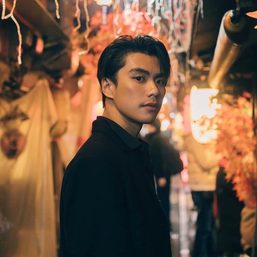
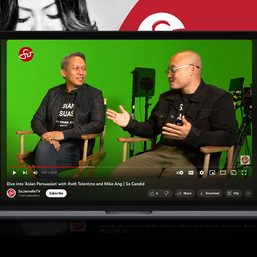
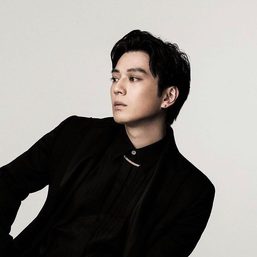

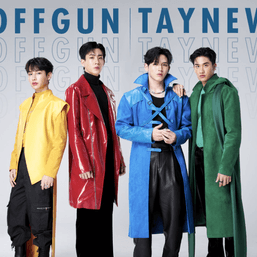
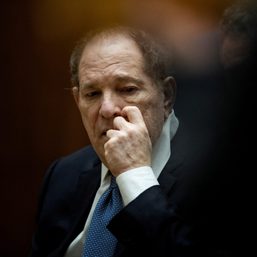
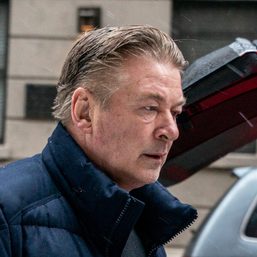

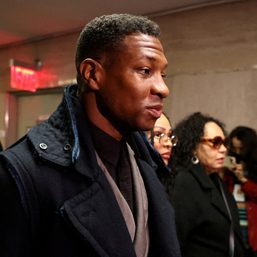

There are no comments yet. Add your comment to start the conversation.